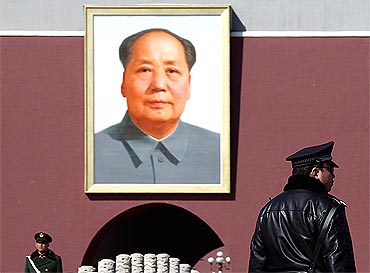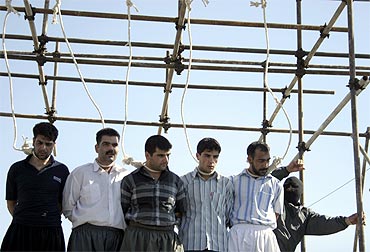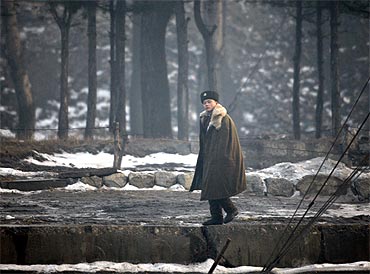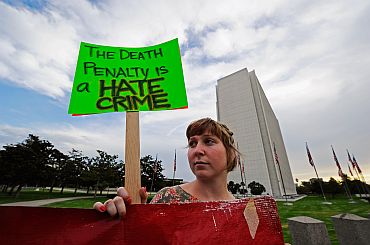
China and the United States still remain among the top countries executing prisoners, resisting the global trend of abolishing the death penalty, an Amnesty International report has revealed.
The Guardian newspaper quoted the report as saying that China had apparently executed more than any other country, but the organisation has failed to provide a precise figure of executions in China as Beijing keeps such figures secret.
China used the death penalty in 2010 against thousands of people for a wide range of crimes that included non-violent offences and after proceedings that did not meet international fair trial standards, AI noted.
Amnesty International has instead challenged the Chinese authorities to publish figures of the number of people sentenced to death and executed each year to confirm the regime's claim that it has reduced the applicability of the death penalty.
Please ..
With inputs from ANI

The report said that setting China aside, at least 527 executions were carried out last year. Almost half of those took place in Iran (252), while there were 60 in North Korea, 53 in Yemen, and 46 in the United States.
The Iranian authorities acknowledged the execution of 252 people, including five women and one juvenile offender, in 2010.
Amnesty International received credible reports of more than 300 other executions which were not officially acknowledged, mostly in Vakilabad prison, Mashhad. Most were of people convicted of alleged drugs offences. Fourteen people were publicly executed. Death sentences continued to be imposed in large numbers.
The minimum number of executions was down from at least 714 in 2009. The methods used by these countries include beheading, electrocution, hanging, lethal injection and various kinds of shooting (by firing squad, and at close range to the heart or the head).

In USA, the only country in the Americas to carry out executions, at least 110 death sentences were imposed during 2010 but this represents only about a third of the number handed down in the mid-1990s.
And in March 2011, Illinois became the 16th state to abolish the death penalty.

In 2010, Amnesty International was not able to confirm comprehensive figures on the use of the death penalty for China, Malaysia, North Korea, Singapore and Vietnam although executions were known to have been carried out in all these countries.
Available information from five other countries in the region confirmed at least 82 executions were carried out in Asia.
Eleven countries imposed death sentences but continued not to carry out executions in 2010: Afghanistan, Brunei Darussalam, India, Indonesia, Laos, Maldives, Myanmar, Pakistan, South Korea, Sri Lanka and Thailand, the report stated.

However, the report claimed that the underlying trend on the death penalty is strongly toward abolition, adding that 31 countries have removed the punishment in law or in practice in the last 10 years.
Last year, Gabon reportedly became the 139th country to either abolish the penalty outright or to cease to use it in practice.
"In spite of some setbacks, developments in 2010 brought us closer to global abolition. The president of Mongolia announced a moratorium on the death penalty, an important first step as capital punishment is still classified as state secret," Salil Shetty, Amnesty's secretary general, said.
"For the third time and with more support than ever before, the UN general assembly called for a global moratorium on executions. Any country that continues to execute is flying in the face of the fact that both human rights law and UN human rights bodies consistently hold that abolition should be the objective," he added.